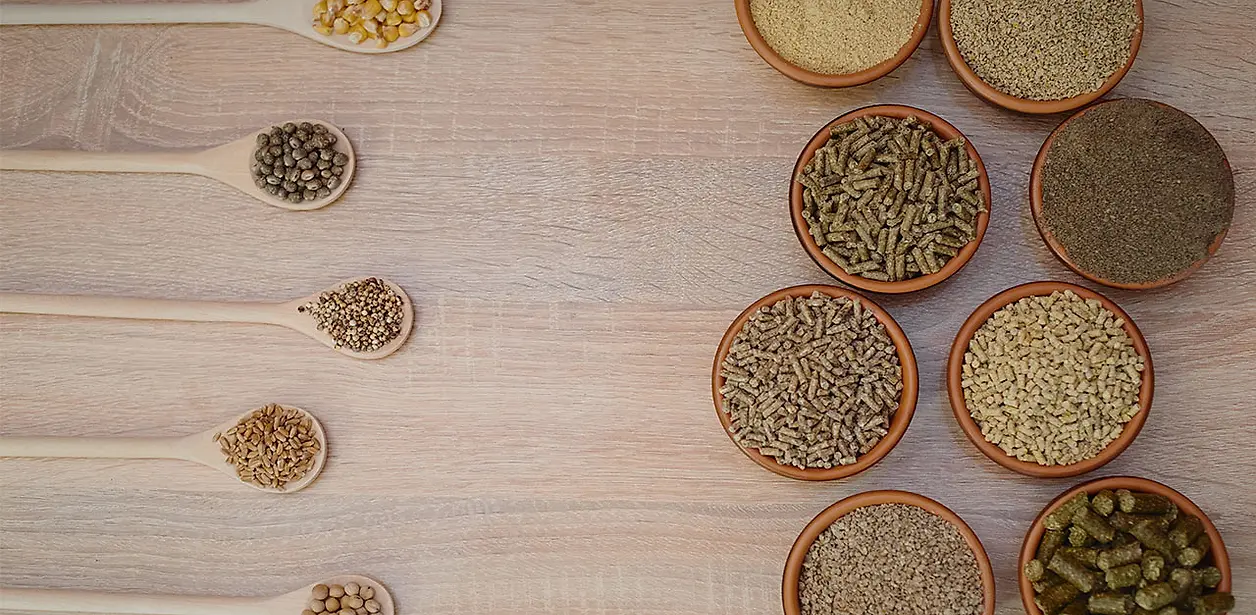ISO 80567 Moisture Testing in Oilseed Residues
The ISO 80567 standard specifies a method for determining the moisture content of oilseed residues. This test is crucial for quality control and ensuring that feed products are safe, stable, and meet regulatory standards. Oilseed residues, which include materials like hulls, germ, and bran, play a significant role in animal nutrition as they can be used to produce value-added products or added back into the feed mix. The moisture content of these residues directly impacts their nutritional quality and shelf life.
The process outlined in ISO 80567 involves drying the sample at specific temperatures (typically between 103°C and 105°C) until it reaches a constant weight, which indicates that all volatile components have been evaporated. The difference between the initial mass of the sample and its final dried weight is used to calculate the moisture content.
Understanding the moisture content of oilseed residues is essential for several reasons:
- Nutritional Value: Excessive moisture can lead to microbial growth, spoilage, and reduced palatability. Conversely, low moisture levels might result in brittle materials that are difficult to process.
- Processing Efficiency: The right moisture content ensures optimal conditions for further processing steps such as milling or blending with other ingredients.
- Regulatory Compliance: Many countries have specific regulations regarding the maximum allowable moisture levels in feed additives. Compliance is crucial for maintaining a positive reputation and avoiding legal issues.
The method described by ISO 80567 allows laboratories to provide accurate, reliable data that can be used to make informed decisions about product quality and safety. This information is vital for quality managers, compliance officers, R&D engineers, and procurement teams who need to ensure consistency in feed production.
At Eurolab, we use state-of-the-art equipment and highly skilled technicians to perform these tests with precision and accuracy. Our laboratories are equipped with drying ovens that maintain the exact temperature required for this procedure, ensuring consistent results across all samples. By adhering strictly to ISO 80567 guidelines, we guarantee that every test conducted meets international standards.
In addition to providing accurate moisture content data, our services also offer valuable insights into how variations in moisture levels may affect the overall quality of oilseed residues used as feed ingredients. This information can help clients optimize their supply chain management and improve product performance.
Why It Matters
The importance of ISO 80567 compliance cannot be overstated when it comes to ensuring the safety, efficacy, and consistency of oilseed residue-based feed products. Proper moisture content ensures that these materials remain stable during storage and processing, preventing potential health risks associated with mold or pathogen growth.
- Quality Control: Monitoring moisture levels helps maintain consistent product quality throughout production cycles.
- Regulatory Compliance: Adhering to specified limits ensures that feed products comply with local and international regulations, avoiding penalties or recalls.
- Consumer Trust: Consistent performance builds trust among consumers who rely on safe, high-quality animal feed.
In summary, accurate moisture testing is not just a technical requirement; it represents a commitment to excellence in the food and feed sectors. By leveraging our expertise and advanced facilities, Eurolab provides clients with the confidence they need to meet these challenges head-on.
Eurolab Advantages
At Eurolab, we pride ourselves on offering comprehensive testing solutions tailored specifically for industries like food and feed. Our team of experts brings decades of experience in quality assurance, ensuring that every service provided meets or exceeds industry expectations.
- Innovative Equipment: We utilize cutting-edge technology to perform precise moisture tests, guaranteeing accurate results each time.
- Experienced Technicians: Our staff includes highly trained professionals who stay updated on the latest trends and techniques in laboratory science.
- Comprehensive Reporting: Detailed reports accompany every test result, providing clients with a clear understanding of their product's current state.
- Client-Centric Approach <|im_start|><|im_start|>/ <|im_start|><|im_start|><|im_start|><|im_start|>⚗️





